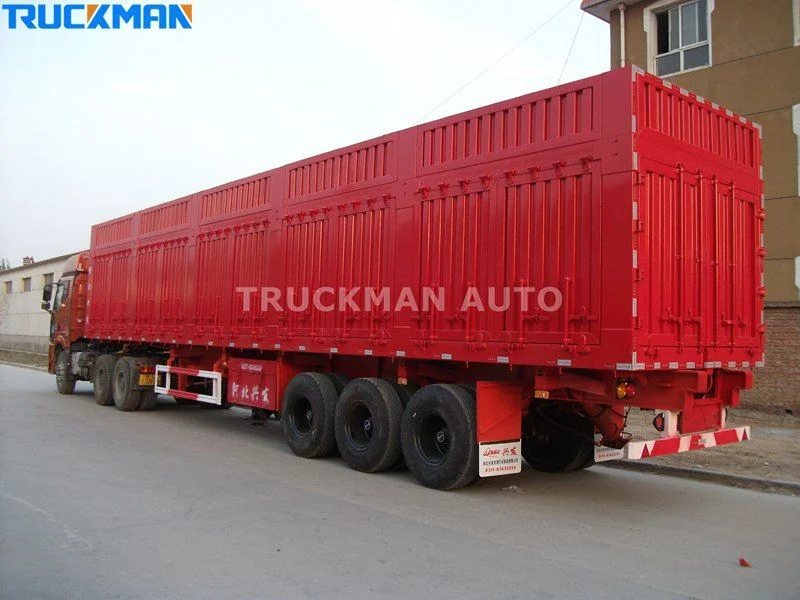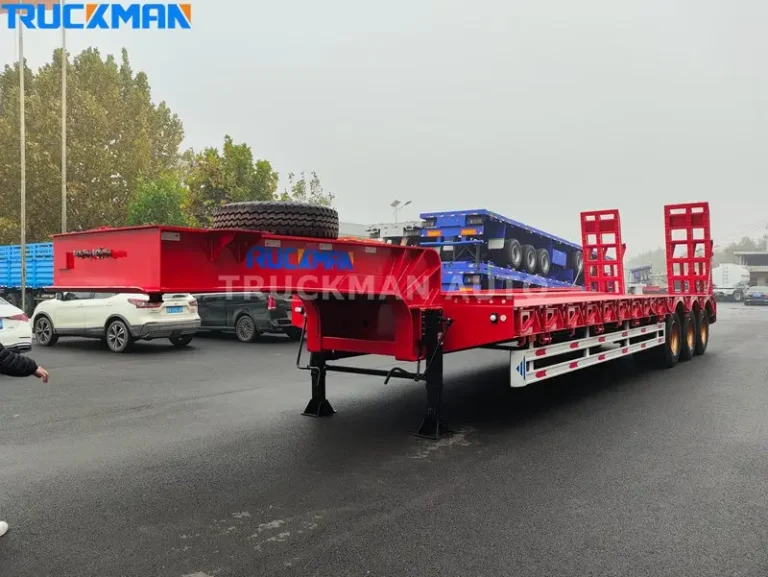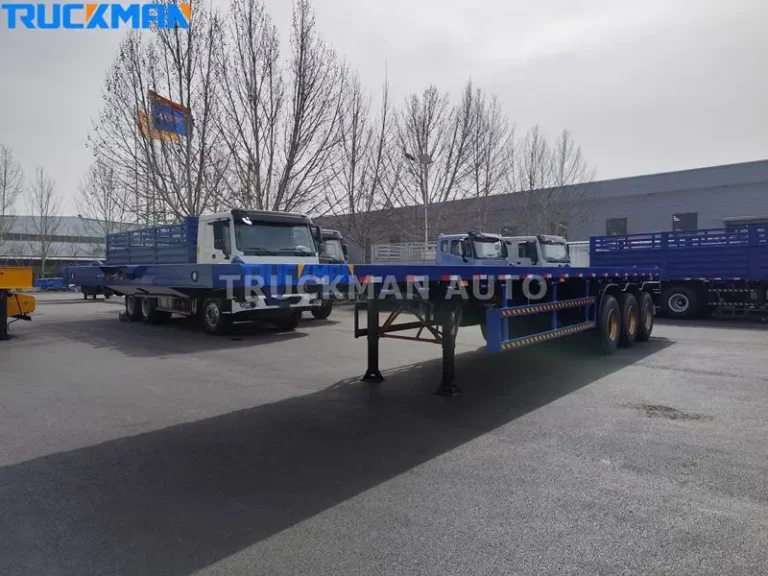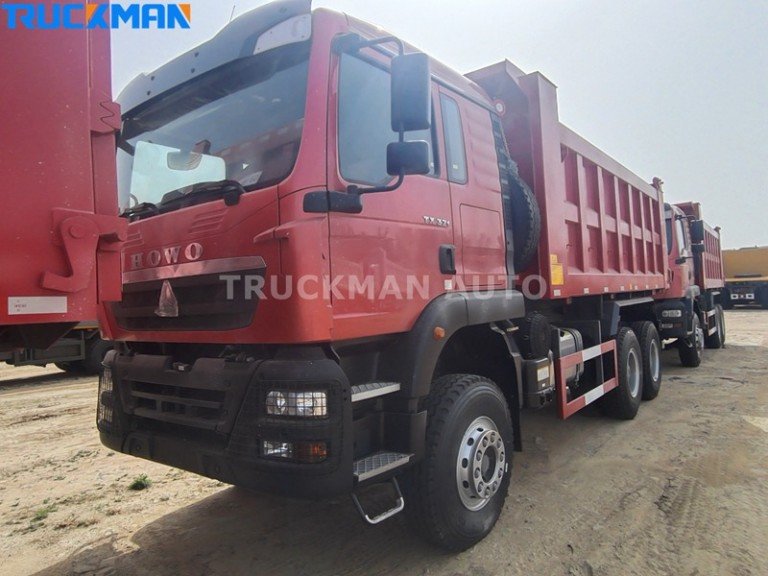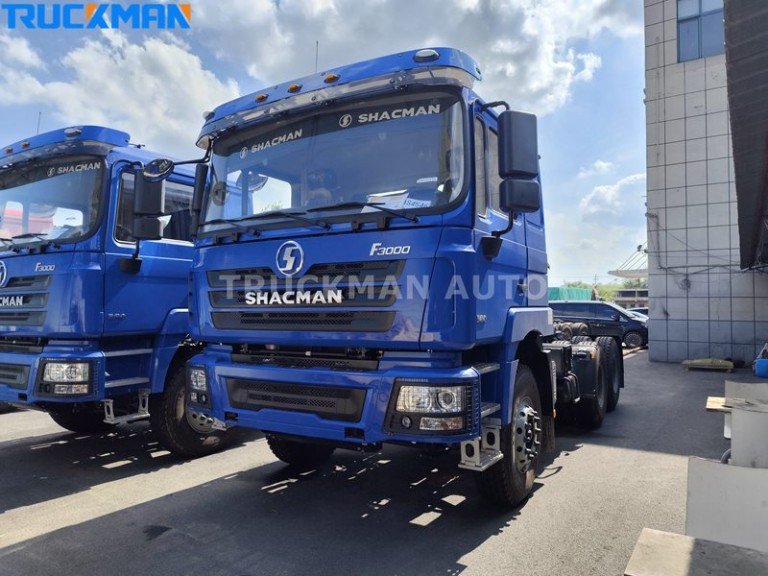At Truckman Automobile, we know how vital it is to keep your side tipper trailer in top shape. This ensures it lasts longer and works better. Having a fleet of trailers is great, but keeping them well-maintained is key.
Proper care boosts safety and cuts down on expensive repairs. As a leading side tipper trailer maker, we’ve gathered expert tips. These are based on our experience and customer feedback to help you care for your equipment.
By following our maintenance tips, you’ll keep safety standards high, lower costs, and get more value from your investment. Our guide covers daily checks, scheduled maintenance, and long-term care. It’s designed to keep your trailer in the best condition.
Table of Contents
Why Regular Maintenance is Critical for Side Tipper Trailers
Regular maintenance is essential for side tipper trailers as it directly impacts their performance and safety. Routine inspections help ensure all components function properly, extending the trailer’s lifespan and reducing overall costs.
Proper upkeep enhances the performance of side tipper trailers by keeping all parts in optimal condition, ensuring efficiency and productivity.
Maintenance plays a vital role in safety and cost management. Well-maintained trailers are less prone to breakdowns, minimizing the risk of accidents. Additionally, regular servicing helps lower fuel consumption, reduce downtime, and decrease the need for frequent part replacements.
Essential Components of a Side Tipper Trailer Maintenance Program
Side tipper trailer maintenance is more than just fixing problems. It’s about preventing them with a structured plan. A detailed maintenance schedule is essential to keep your trailer in top shape.
Daily/Pre-Operation Checks
- Tires: Check tire pressure and inspect for damage or abnormal wear.
- Lights: Ensure all lights, including brake and tail lights, are functioning properly.
- Brakes: Test brake performance and check for wear or unusual noises.
- Hydraulic System: Verify hydraulic fluid levels and inspect for leaks.
- Fifth Wheel/Turntable: Apply grease to ensure smooth operation.
- Wheel Hubs: Check hub oil levels and ensure nuts are tight.
- Airlines: Inspect for damage or kinks and drain water from air tanks.
- Fasteners: Ensure all bolts and fasteners are secure.
- Safety Chains: Inspect chains and hooks for wear or damage.
Regular Maintenance
- Lubrication: Apply grease to all moving parts regularly.
- Wheel Bearings: Inspect and repack bearings as needed based on usage.
- Brakes: Check brake components for wear and replace if necessary.
- Frame and Welding: Inspect for cracks or damage and repair as needed.
- Electrical System: Ensure wiring and lights are in good condition and functioning.
- Hydraulic System: Replace hydraulic fluid and filters periodically to maintain cleanliness.
- Cleaning: Clean the trailer thoroughly to prevent corrosion and debris buildup.
Quarterly and Annual Service
- Quarterly Maintenance: Analyze hydraulic fluid and replace worn components.
- Annual Maintenance: Conduct a full inspection and complete safety certifications.
Additional Tips
- Follow the Manual: Adhere to manufacturer-specific maintenance recommendations.
- Fix Issues Promptly: Address small problems early to avoid costly repairs.
- Professional Inspections: Schedule annual checks with qualified technicians.
Hydraulic System Maintenance and Care for Side Tipper Trailers
At Truckman Automobile, we stress the importance of hydraulic system maintenance for side tipper trailers. The hydraulic system is crucial, and neglecting it can cause inefficiencies and breakdowns.
Checking for Leaks and Damage: Regularly inspecting for hydraulic fluid leaks is essential. Daily visual checks of all hydraulic components, hoses, and connections can help identify potential issues early. Special attention should be given to hydraulic hoses for signs of cracking, abrasion, or bulging.
Proper Fluid Levels and Replacement Schedules: Maintaining proper hydraulic fluid levels is crucial. Low fluid levels can cause pump cavitation and system damage. Use the correct fluid type and viscosity, as specified in your Truckman Automobile manual. Complete hydraulic fluid replacement is recommended every 1,000 operating hours or annually.
Maintaining Cylinders and Lift Mechanisms: Hydraulic cylinders require special attention. Inspect cylinder rods for scratches or pitting, ensure proper alignment, and check seals for leakage. The lift mechanism’s pivot points should be lubricated according to the maintenance schedule to ensure smooth operation.
Tire Maintenance and Safety Checks
At Truckman Automobile, we stress that maintaining your tires is vital for the safety and efficiency of your side tipper trailer. Tires bear the brunt of heavy loads and rugged terrains, making regular checks crucial.
Proper Tire Pressure and Tread Inspection: Maintaining the correct tire pressure is essential for safety and performance. Check pressure weekly and before long hauls, using a quality gauge. Regular tread inspections help identify uneven wear, adequate tread depth, and signs of damage.
When to Replace Tires and Best Practices: Replace tires when tread depth reaches 4/32″ or if significant damage is noticed. It’s recommended to replace tires in pairs on the same axle to maintain balanced handling.
Alignment and Balancing Considerations: Proper alignment and balancing are critical for tire longevity. Misalignment can cause uneven wear, while imbalanced tires create damaging vibrations. Annual professional alignment checks are recommended.
Brake System Inspection and Servicing
The brake system is a critical component of your side tipper trailer, requiring regular inspection and maintenance to ensure reliable stopping power under all conditions.
Signs of Brake Wear : Understanding the signs of brake wear is essential for maintaining your trailer’s safety. Listen for unusual noises like squealing or grinding, and visually inspect brake components for wear during regular maintenance. Brake shoes should be replaced when the lining thickness reaches 1/4 inch or less.
Maintaining S-Cams and Brake Performance: S-cam brakes need special care. It’s vital to lubricate S-cams, rollers, and bushings for smooth operation. We suggest lubricating S-cam bushings and slack adjusters every 3 months or 25,000 miles with high-quality grease.
Chassis and Structural Maintenance
The chassis is the core of your side tipper trailer. Regular maintenance is key to its structural integrity. Start by inspecting the chassis and frame to spot issues early.
Checking for Corrosion and Structural Damage: Corrosion is a major threat to your trailer’s structure. Regularly check the chassis for rust, flaking paint, or bubbling finishes. Focus on areas where moisture accumulates or metals meet.
Lubrication Points and Greasing Procedures: Proper lubrication is crucial for all moving parts. Create a greasing schedule for pivot blocks, kingpins, and bearings. Use the lubricant type specified in your Truckman Automobile manual.
Inspecting Pivot Blocks and Kingpins: Pivot blocks and kingpins enable tipping and need regular checks. Look for wear, proper alignment, and adequate lubrication. Use a specialized gauge to measure kingpin wear annually to avoid metal-to-metal contact.
Cleaning and Environmental Protection
Cleaning and protecting your side tipper trailer from environmental damage is crucial. Regular cleaning prevents corrosion, allows for inspections, and extends your trailer’s life.
Proper Cleaning Techniques After Material Transport
After transporting materials, especially abrasive or corrosive substances, immediate cleaning is essential. Use appropriate pressure washing to remove residue from the trailer body, undercarriage, and moving parts. Be careful not to force water into bearings or electrical connections.
- Focus on pivot points, hydraulic cylinders, and brake components, as material buildup can accelerate wear and compromise safety.
- Regular cleaning helps identify potential issues early, ensuring your trailer remains in good working condition.
Protecting Against Environmental Damage
Environmental protection is more than just cleaning. Apply protective coatings to vulnerable areas based on your operating environment. For harsh conditions, consider additional protective measures like sacrificial anodes or anti-corrosion treatments.
- Store your trailer in a covered area when not in use to minimize UV damage and corrosion.
- Establish a regular schedule for applying protective waxes or sealants to painted surfaces and exposed metal components.
Extending the Lifespan of Your Side Tipper Trailer
At Truckman Automobile, we stress that regular maintenance is key to extending your side tipper trailer’s lifespan. Proper care and maintenance not only extend its life but also ensure it remains in good condition, maximizing your investment.
Preventative Maintenance: Implementing a tiered maintenance approach is crucial. This includes daily visual inspections, weekly minor maintenance, and monthly thorough checks. Proper operator training is also essential to reduce wear and tear on your dump trailer.
Record Keeping and Maintenance Scheduling: Keeping detailed records is crucial for effective maintenance management. It’s important to log all services, repairs, and inspection results. A digital maintenance scheduling system can prevent missed tasks. It sends automated reminders for upcoming services.
Maximizing Your Investment Through Proper Care
A well-maintained tipper semi trailer is more than just an asset; it’s a reliable partner in your projects. At Truckman Automobile, we see maintenance as an investment, not a cost. It extends equipment life and boosts safety. Following our maintenance guide ensures your dump trailer operates efficiently and safely.
Remember, safety is paramount. A well-maintained trailer protects your investment, operators, and others on the road. We’re dedicated to providing the knowledge and resources to keep your equipment in top condition.
FAQ
How often should I inspect my side tipper trailer’s tire pressure?
Check tire pressure at least once a week. Underinflated tires can shorten lifespan and increase the risk of a blowout.
What are the signs of brake wear in a side tipper trailer?
Brake wear signs include unusual noises, vibrations when applying brakes, or a spongy brake pedal. Regular checks can catch issues before they worsen.
How do I maintain the hydraulic system of my side tipper trailer?
Regularly inspect for leaks, maintain fluid levels, and replace fluids as scheduled. This ensures optimal performance.
What is the importance of lubricating the chassis and structural components?
Lubrication reduces friction, prevents corrosion, and extends trailer lifespan. It minimizes wear on moving parts.
How often should I clean my side tipper trailer after transporting materials?
Cleaning is essential after every use, especially with corrosive or abrasive materials. It prevents damage and maintains the trailer’s condition.
What are the benefits of regular maintenance for my side tipper trailer?
Regular maintenance boosts safety, cuts operational costs, and extends trailer lifespan. It maximizes your investment.
Can I perform maintenance tasks on my own, or do I need a professional?
Owners can handle daily inspections. However, complex tasks like brake servicing or hydraulic system maintenance require a professional mechanic.
How do I know when to replace the tires on my side tipper trailer?
Replace tires when tread depth hits the minimum recommended by the manufacturer. Also, check for uneven wear, damage, or excessive wear.

